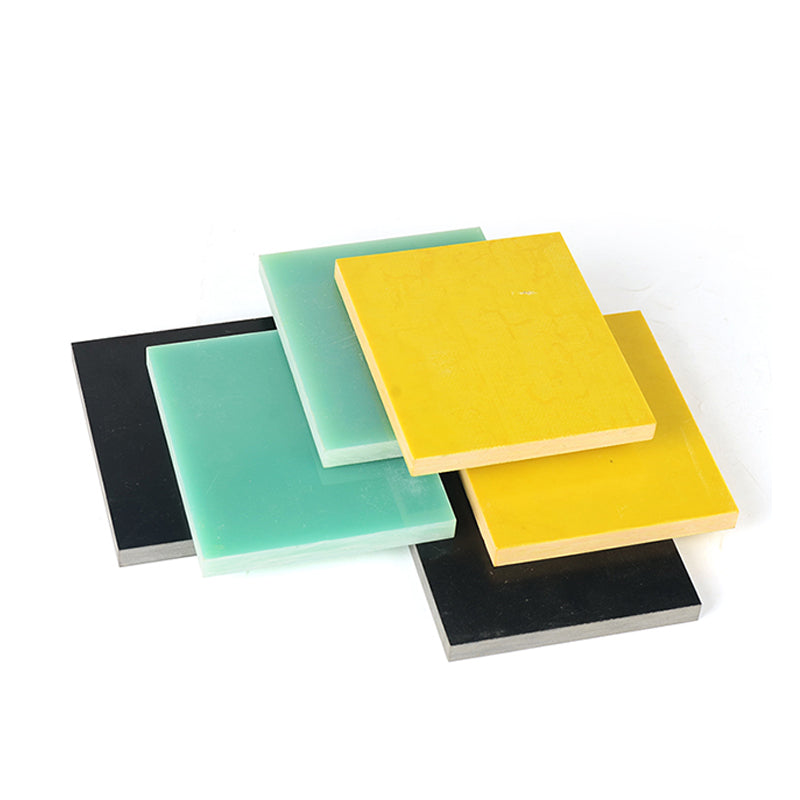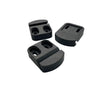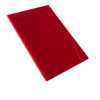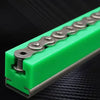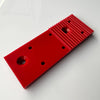How PEEK Plastic is Revolutionizing the Automotive Industry
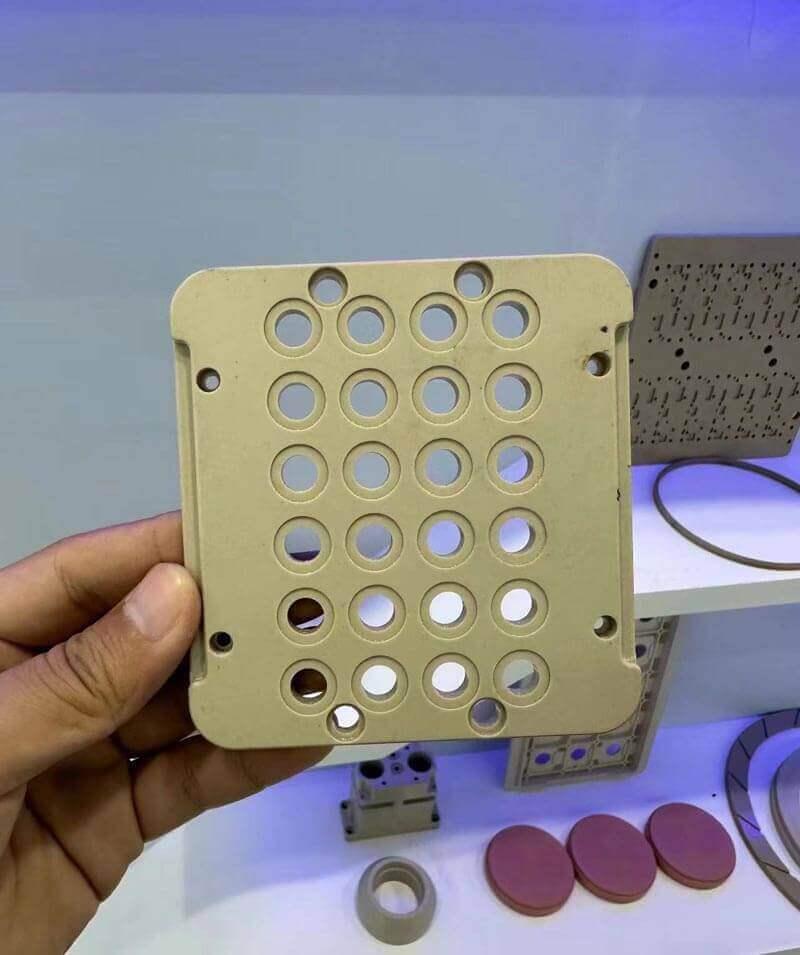
The automotive industry is always looking for new materials that can improve vehicle performance, efficiency, and durability. One innovative material that is transforming car manufacturing is PEEK plastic.
🎉 Limited Time Offer
Use code: QR4GNY08SHVR at checkout and enjoy a special discount on your entire order!
👉 Shop PEEK Plastic Now
What is PEEK?
PEEK (polyether ether ketone) is a high-performance thermoplastic polymer plastic with exceptional mechanical and chemical properties. PEEK has high heat and chemical resistance, with a working temperature range of -60°C to +250°C. The molecular structure of PEEK makes it very tough and rigid, giving it strength comparable to metals.
PEEK offers superior durability over other plastics. It maintains its mechanical properties and dimensional stability even after thousands of hours of stress at high temperatures. This unique combination of heat resistance, chemical resistance and structural strength makes PEEK an ideal material for critical components under the hood.

Key Benefits of Using PEEK Plastic in Automotive Applications
There are several key advantages that PEEK plastic brings to auto manufacturing and part performance:
High Strength-to-Weight Ratio
PEEK has an outstanding strength-to-weight ratio, meaning it can replace heavier metals while maintaining structural integrity. Parts made from PEEK plastic are lighter weight than steel or aluminum equivalents. This allows for better fuel economy, especially important as automakers work to meet emissions standards.
The lightweight properties of PEEK are highly desirable for electric vehicles (EVs), where reducing weight results in longer range from batteries. Replacing metal components with PEEK parts can extend EV range.
Withstands Extreme Engine Heat

PEEK is ideal for parts subjected to high heat, like engine and transmission components. The continuous working temperature of PEEK is up to 250°C, surpassing metals. PEEK retains its excellent mechanical properties even after long-term exposure to temperatures above 200°C.
PEEK's heat resistance exceeds other plastics, making it suitable for replacing metal in under-the-hood applications. Engine components must withstand ever-increasing temperatures as automakers squeeze more power from smaller engines. PEEK provides a plastic that can handle the intense heat while offering design flexibility.
Chemically Resistant Properties
In addition to heat resistance, PEEK exhibits excellent chemical resistance. It is highly resistant to automotive and roadway chemicals like motor oil, greases, coolants, brake fluids, and battery acids. PEEK maintains its structural integrity and surface finish even after exposure to harsh chemicals at high temperatures over hundreds of hours.
This chemical resistance allows PEEK plastic to be used for fuel system components, oil pumps, sensors, seals and gaskets that would be degraded by chemical exposure over time. Parts made from PEEK enjoy longer service life.
Design and Manufacturing Flexibility
Unlike metal alternatives, PEEK plastic can be injection molded into complex geometries which can simplify designs. PEEK allows for consolidated, integrated parts that replace assemblies of multiple metal components. This enables lighter, more compact designs.
PEEK is also amenable to machining and finishing, allowing precise part creation. Components can be produced near net shape, reducing wasted material. The processability and fabrication flexibility of PEEK facilitate innovative part designs not feasible with metals.

PEEK Applications and Replacing Metals in New Car Models
With its superior durability and performance, PEEK plastic has become the material of choice for a growing number of critical automotive components:
- Engine parts - pistons, pumps, seals, gaskets, bushings, wear pads. PEEK withstands the extreme heat and pressure inside engines.
- Transmission components - clutches, bearings, mechanical links. PEEK maintains its strength under heavy loads over millions of cycles.
- Structural parts - suspension arms, gears, cams, fasteners. PEEK provides toughness with lower weight.
- Electronics - sensors, connector housings, control units. PEEK offers electrical insulation along with environmental protection.
Major automotive manufacturers utilizing PEEK include BMW, Volkswagen, General Motors, Volvo, Toyota, Renault, Chrysler, Tesla, and Mercedes-Benz.
The Chrysler Group's 2011 Jeep Grand Cherokee featured 30 PEEK plastic components, including air suspension system parts, replacing metals. This resulted in a 15kg weight reduction while maintaining strength and function.

Need Custom PEEK Machining?
We offer CNC Plastic Machining Services to create precise automotive parts from PEEK. Precision milling, turning, and cut-to-size services available with No MOQ.
Get a Free QuoteThe Future of PEEK Polymers in Automotive Manufacturing
As automakers strive to improve fuel efficiency and reduce emissions, they will continue to replace metals with engineered plastics like PEEK. Lighter vehicles require less energy to propel them, meaning better fuel economy and longer EV range per charge.
According to Grand View Research, the global automotive PEEK market is projected to reach USD $115 million by 2025, growing at a CAGR of 6.7%. Rising PEEK use in EVs, hybrid electric vehicles (HEVs) and high-end vehicles will drive increasing adoption.

PEEK allows engineers to consolidate multiple components into integrated designs that reduce part count, assembly labor and weight. New grades of PEEK are being developed for even higher heat and wear resistance to expand PEEK's capabilities.
Automakers will utilize PEEK's exceptional properties to enable lighter, more efficient power trains and structural components. PEEK provides design freedom not possible with metals, allowing innovations in the way vehicles are engineered.
As the quest continues for more performance from smaller, more efficient powertrains, robust materials that can survive the intense operating environments are essential. With its high strength, temperature resistance and chemical resistance, PEEK plastic will be a go-to material for automakers as they shape the future of transportation.
PEEK polymer offers an exciting material solution for the automotive industry. PEEK parts are lighter than metal counterparts, enabling better fuel economy and electric vehicle range. This high-performance plastic withstands extreme heat and resists harsh chemicals, making it ideal to replace metals in critical engine and transmission applications.

With its strength, heat resistance and design flexibility, PEEK allows for innovative new components and system integration. As automakers push the boundaries of efficiency and performance, PEEK provides the durability and reliability required from a material exposed to punishing conditions over millions of cycles. This exceptional thermoplastic is positioned to transform auto manufacturing as a key enabler helping drive the future of mobility.
Start Your Project with BeePlastic
If you are interested in using PEEK Plastic in your project or want to know more information, welcome to contact us. We are a professional supplier and manufacturer of all kinds of plastic custom processing and production, with a professional team of engineers and precision equipment, we can provide you with customized plastic solutions that meet your specifications and budget.
We are happy to serve you and help you fulfill your needs. Do you need a free quote or help with any questions or materials?
🎉 Limited Time Offer Use code: QR4GNY08SHVR at checkout and enjoy a special discount on your entire order!
Our website: www.BeePlastic.com
-
Posted in
automotive industry, cnc plastic machining, Custom PEEK Parts, Electric Vehicles, engineering plastics, EV Components, High Performance PEEK, Metal Replacement, PEEK Plastic, PEEK Polymer, PEEK Rods, PEEK Sheets, Precision Plastic Components, Thermoplastic, Under the Hood Parts, Why Light Weight Vehicles matter

